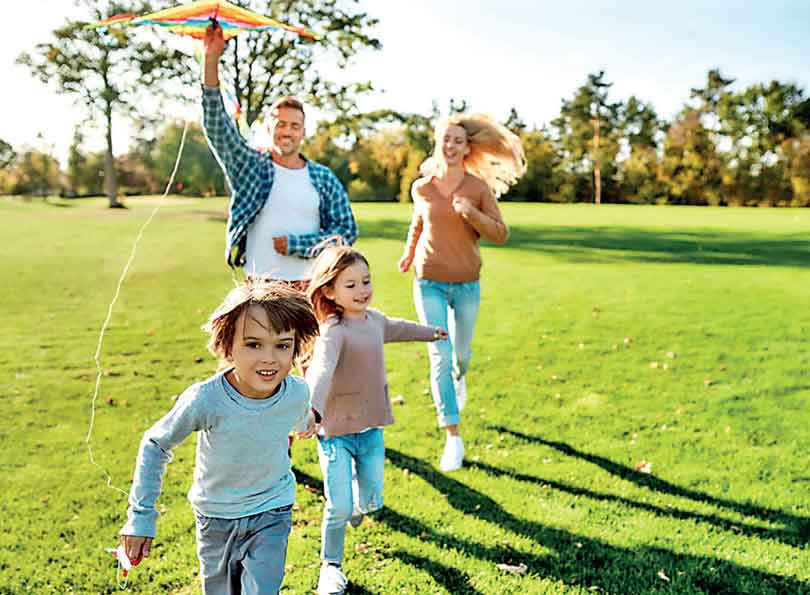Tuesday Feb 24, 2026
Tuesday Feb 24, 2026
Thursday, 2 October 2025 14:47 - - {{hitsCtrl.values.hits}}

Outdoor play helps children build stronger bodies through running, climbing, jumping and balancing. These physical activities improve coordination, bone strength and immunity while reducing the risk of childhood obesity. Exposure to natural sunlight supports essential Vitamin D production, which strengthens bones and promotes overall health.
Play is not a luxury for children—it is a fundamental part of their physical, emotional and intellectual development. In an age where screens often replace playgrounds, it is vital to restore the value of outdoor activities and unstructured playtime. On World Children’s Day, we are reminded that a child’s wellbeing depends not only on education and safety, but also on the freedom to explore, imagine and move.
Outdoor play helps children build stronger bodies through running, climbing, jumping and balancing. These physical activities improve coordination, bone strength and immunity while reducing the risk of childhood obesity. Exposure to natural sunlight supports essential Vitamin D production, which strengthens bones and promotes overall health.
Beyond physical benefits, outdoor play stimulates cognitive development. When children engage in games, build with natural materials or explore their surroundings, they develop problem-solving skills, curiosity and creativity. Activities such as hide-and-seek, sand play or nature walks enhance imagination in ways screens cannot replicate.
Social skills also flourish during play. Group games teach children about teamwork, negotiation, sharing and conflict resolution. They learn how to handle winning and losing, how to communicate feelings and how to respect others. These experiences shape emotional intelligence, empathy and resilience.
Play is also closely linked to mental health. Children who have time to play freely are better able to manage stress and express emotions. Activities like cycling, running or playing with friends release endorphins and reduce anxiety. In contrast, a lack of outdoor time can lead to irritability, inactivity and decreased concentration.
Parents and schools must work together to create more opportunities for active play. Limiting excessive screen time, organizing community playground programmes and making outdoor spaces safe and child-friendly can make a significant difference. Schools should ensure that physical education and outdoor breaks are not sacrificed for academics.
Playgrounds, parks, home gardens and even village grounds can serve as learning spaces. Traditional games such as hopscotch, cricket, tag and ball games build cultural connection and encourage intergenerational bonding. When adults participate or supervise positively, children feel encouraged and secure.
On World Children’s Day, let us reaffirm that play is not separate from learning—it is an integral part of childhood. Giving children the space and freedom to play outdoors helps them grow into healthier, happier and more confident individuals.